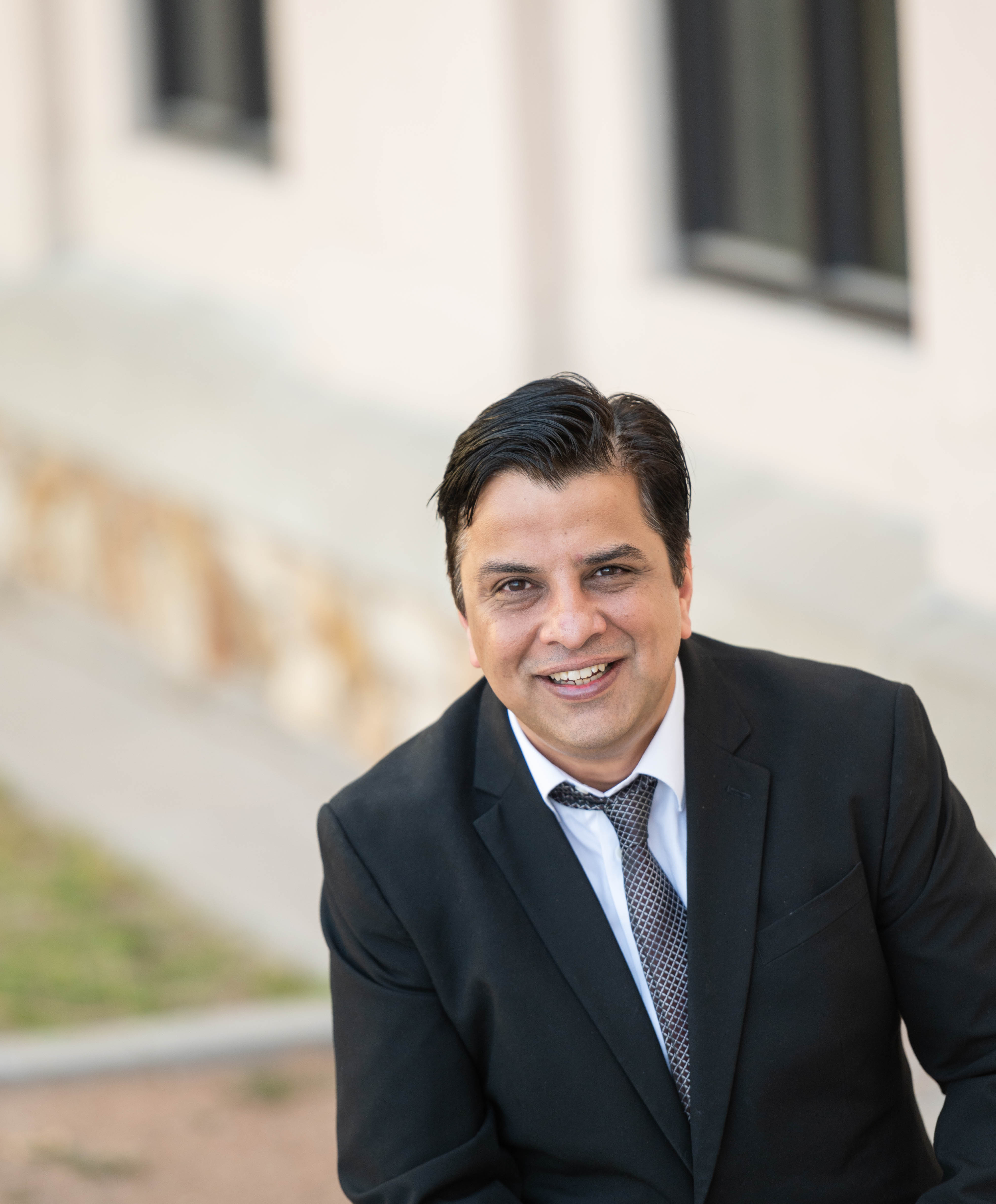Jagdish Khubchandani joined the Department of Public Health Sciences at NMSU in August 2020, five months into the COVID-19 pandemic. By then, the prominent public health expert with nearly 20 years of experience in medicine and higher education knew he’d have to shift the focus of his research.
“Mental health was always a focus,” Khubchandani says, “but the pandemic warranted quick, unique and new methods to analyze what’s happening nationwide and worldwide.”
Since joining NMSU, Khubchandani has published nearly a dozen studies on topics related to COVID-19. His research on vaccine hesitancy, rising depression and anxiety rates, internet addiction and weight gain during the pandemic has gained national attention and shed light on the many ways in which COVID-19 has affected everyday life.
In one of his first studies as an NMSU faculty member, Khubchandani found that the pandemic was fueling unhealthy diets among American adults.
The findings – published in the European Journal of Investigation in Health, Psychology, and Education – were part of the first and largest national study on pandemic-related stress and eating habits in the United States.
By December 2020, Khubchandani completed one of his first studies on COVID-19 vaccine hesitancy just as the U.S. was preparing to roll out an ambitious inoculation campaign.
The study, published in the Journal of Community Health, found a vaccine hesitancy rate of 22 percent among participants. Over time, the rates have remained consistent, Khubchandani says.
“We should have prepared better for vaccine hesitancy,” he says.
Working with collaborators at NMSU and elsewhere, Khubchandani published several additional studies about COVID-19 vaccine hesitancy in specific populations throughout 2021 and 2022.
Khubchandani says many of his research topics come from the students he mentors and works with. Last year, he published four studies with student collaborators. He says giving research opportunities to students is critical at this time.
“It’s key for their training and for our knowledge to understand the generational gap of what they’re dealing with,” he says. “They’re graduating in unusual times, and they have to know new techniques of research to examine these timely issues.”
Yilda Macias, one of Khubchandani’s former graduate students who worked a study examining vaccine hesitancy among Black and Hispanic populations, has since joined a Ph.D. program in Washington state.
“She was admitted into five top schools, with funding, for a Ph.D. program,” Khubchandani says. “She’s a first-generation college student and lived in the border community all her life. Now, she’s going places with broader horizons. It’s exciting to see how a student’s career trajectory can improve through research, internships and media appearances.”
Earlier this year, Khubchandani published his first study on the long-term psychological burdens of COVID-19 in the prestigious European Journal of Internal Medicine. He found that COVID-19 survivors were almost three times more likely to report anxiety symptoms than those never infected with the disease.
Khubchandani believes his research endeavors inform greater public discussion, awareness and policy guidance.
“Some of our papers have now been cited by the CDC and the U.S. Department of Health and Human Services to provide guidance on vaccine and health equity,” he says.
More than two years into the pandemic, Khubchandani hasn’t grown tired of researching COVID-19. If anything, he says, he’s more determined to learn more about the impacts of the disease and how it will shape society.
Khubchandani says he has enjoyed the past two years at NMSU, noting support from colleagues across the university and the College of Health, Education and Social Transformation.
“People here are willing to help and support you, give you the freedom that you want, and provide you guidance when you need it,” he says. “We are a large family around here with a common mission and vision, and that’s how it should be.”

Jagdish Khubchandani, professor of public health sciences in the College of HEST, completed his first study on COVID-19 vaccine hesitancy in December 2020.
1220 Stewart Street
O'Donnell Hall, Suite 301
Las Cruces, NM 88003